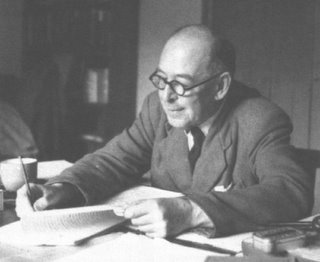| |
He had a face . . .
Paul wrote, "For God, who said, 'Light shall shine out of darkness,' is the One who has shone in our hearts to give the light of the knowledge of the glory of God in the face of Christ" (2 Cor. 4:6).
What would it be like to see that face? Frederick Buechner writes,
 "Whoever he was or was not, whoever he thought he was, whoever he has become in our memories since and will go on becoming for as long as we remember him--exalted, sentimentalized, debunked, made and remade to the measure of each generation's desire, dread, indifference--he was a man once, whatever else he may have been. And he had a man's face, a human face. "Whoever he was or was not, whoever he thought he was, whoever he has become in our memories since and will go on becoming for as long as we remember him--exalted, sentimentalized, debunked, made and remade to the measure of each generation's desire, dread, indifference--he was a man once, whatever else he may have been. And he had a man's face, a human face.
Ecce homo, Pilate said--Behold the man--yet we tend to shrink back from trying and try instead to behold Shakespeare's face, or Helen of Troy's, because with them the chances are we could survive almost anything--Shakespeare's simper, say, or a cast in Helen's eye. But with Jesus the risk is too great; the risk that his face would be too much for us if not enough, either a face like any other face to see, pass by, forget, or a face so unlike any other that we would have no choice but to remember it always and follow or flee it to the end of our days and beyond. Like you and me he had a face his life gave shape to, and that shaped his life and the lives of others, and with part of ourselves I think we might turn away from the mystery of that face, that life, as much of the time we turn away from the mystery of life itself. With part of ourselves I think we might avoid meeting his eyes, if such a meeting were possible, the way at certain moments we avoid meeting our own eyes in mirrors because for better or worse they threaten to tell us more than we want to know. This is with part of ourselves. But there is another part, the dreaming part, the part that runs to meet in dreams truths that in the world itself we run from."
As I read those words, I picture a crowd swirling around Jesus as they might a rock star. I cannot see his face, but he is the only figure walking straight ahead. Fans and followers jostle around him. As the crowd makes its way down the street, he pauses. A slight gap opens up between the bodies. Do I rush to him? Or do I flinch, and let the crowd pass?
John's words are challenging: "And now, little children, abide in him, so that when he appears we may have confidence and not shrink away from him in shame at his coming" (1 John 2:28). To be honest, I find Paul's words more hopeful. Writing to the Corinthians, who had all kinds of issues, he observed that they were "awaiting eagerly the revelation of our Lord Jesus Christ" (1 Cor. 1:7). Whatever else they had wrong, the Corinthians evidently had this one thing right. It is Christ who would confirm them to the end, and through him they would be blameless when they saw his face (v. 8).
No icon has captured the human face of Jesus. But this we know. It is the face of grace. "Your face, O Lord, I will seek" (Ps. 27:8).
Bob
C. S. Lewis on Desire
 C. S. Lewis, writing in The Weight of Glory, described his understanding of self-denial and desire: "The New Testament has lots to say about self-denial, but not about self-denial as an end in itself. We are told to deny ourselves and take up our crosses in order that we may follow Christ; and nearly every description of what we shall ultimately find if we do so contains an appeal to desire. . . . Our desires are not too strong, but too weak Indeed, if we consider the unblushing promises of reward and the staggering nature of the rewards promised in the Gospels, it would seem that Our Lord finds our desires not too strong, but too weak. We are half-hearted creatures, fooling about with drink and sex and ambition when infinite joy is offered us, like an ignorant child who wants to go on making mud pies in a slum because he cannot imagine what is meant by the offer of a holiday at the sea. We are far too easily pleased." Our problem is not that we love, but that we love lesser things. Created to glorify God and enjoy Him forever, we have turned our gaze inward and settled for far less. In the language of Romans 1, we have exchanged the glory of God for something corruptible and fading. It would be easy to read such words and be discouraged, but that is not why they are offered here. Lewis provides an explanation for our longing. Why is it that on our best days--days when we are filled with laughter and joy in the presence of friends, stand in awe before the beauty of creation, or fall into bed exhausted after laboring wholeheartedly in work that we love--why is it that even on those days we still feel a yearning for something more? It is because we are made for more, said Lewis. And there will come a day when "the door on which we have been knocking all our lives will open at last." Bob
Chocolate as a Spiritual Discipline
In LifeSpace, we speak of spiritual disciplines in a manner that is a bit different than you may expect. Discipline is laying yourself in the way of allurement, as Jonathan Edwards wrote. Positioning your minutes and hours to encounter the glorious, delightful God of the universe. Up close and personal. I spent four hours blogging today. Updating blogs, checking blogs...blog, blog, blog. The word BLOG is dancing in front of my eyes. To be honest, I really do not care if I ever see another written WORD at this point. The lines and curves of letters have saturated my being. To counteract this unfortunate occurrence, I am going to practice a spiritual discipline. It involves eating chocolate with my teenage daughters. The girls will barrel through the front door any moment. There will be floods of words for me. I can be quiet. I will practice listening well. Chocolate encourages them to keep the words flowing. My tall daughter will drape her loungey, lanky self all over me. My eldest daughter will vascillate between being sophisticated and eating Jello pudding with her index finger. God will grace me with delight in all that it is to be young. When the girls go to their rooms for homework sessions, I will go to the back patio and be quiet. Feel the cool night air on my face. Words will have to find me tomorrow. Joni p.s.--okay, maybe one more word . . .
|
    |
 "Whoever he was or was not, whoever he thought he was, whoever he has become in our memories since and will go on becoming for as long as we remember him--exalted, sentimentalized, debunked, made and remade to the measure of each generation's desire, dread, indifference--he was a man once, whatever else he may have been. And he had a man's face, a human face.
"Whoever he was or was not, whoever he thought he was, whoever he has become in our memories since and will go on becoming for as long as we remember him--exalted, sentimentalized, debunked, made and remade to the measure of each generation's desire, dread, indifference--he was a man once, whatever else he may have been. And he had a man's face, a human face.

